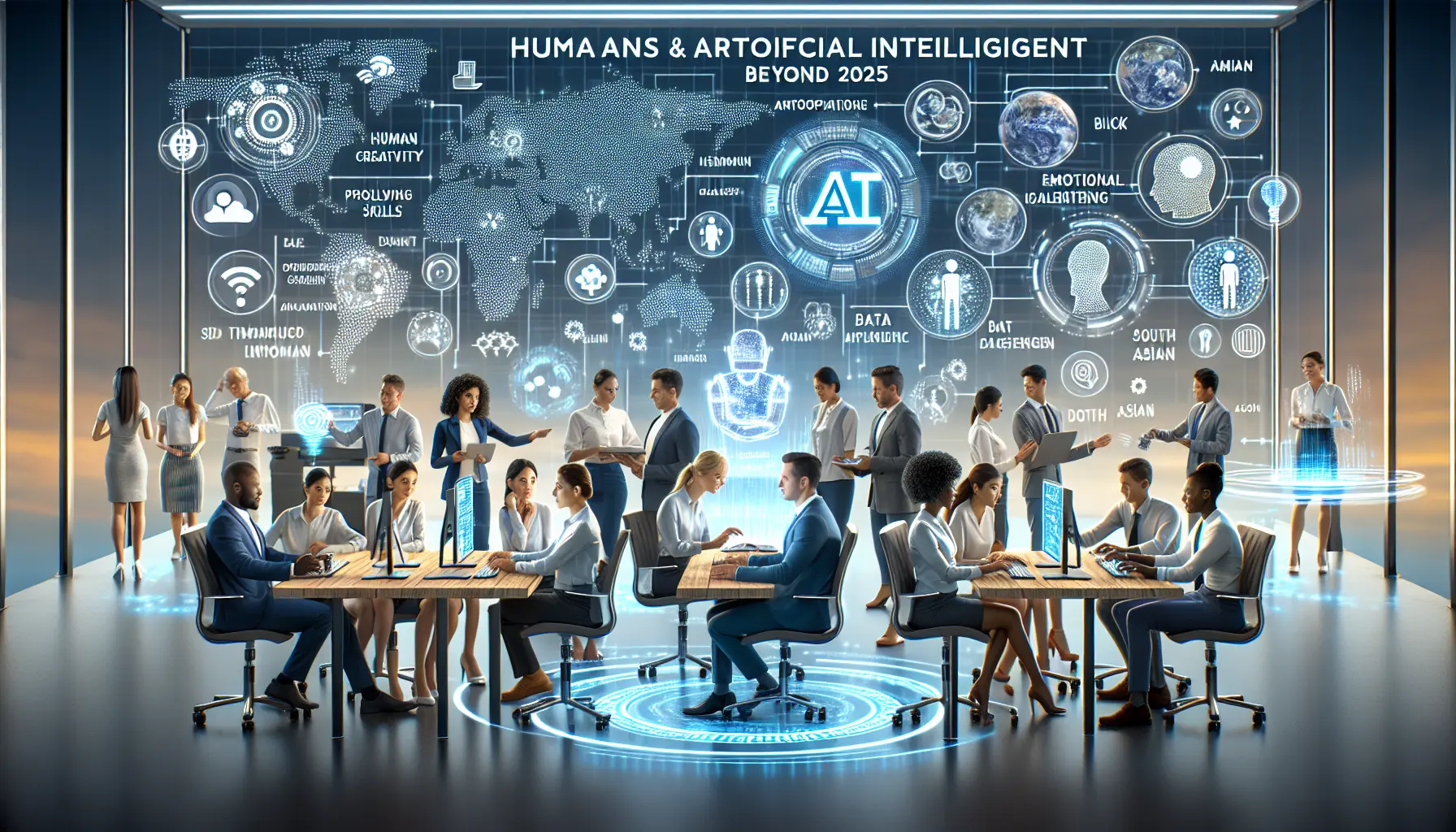
Estimated reading time: 8 minutes
Key Takeaways
- Automation Impact: By 2025, 90% of US companies will implement AI, significantly altering job landscapes.
- Job Displacement: Approximately 92 million jobs may be displaced globally by 2030, but 170 million new roles are expected to emerge.
- Human-AI Collaboration: Success in the workplace will depend on leveraging both AI capabilities and human strengths.
- Reskilling Necessity: 44% of workers will need significant reskilling within five years to stay competitive.
- Future Roles: New job roles will include AI ethics officers and human-machine teaming managers.
Table of Contents
The Current State of Workplace Automation
Automation technology is revolutionizing how we work. By 2025, 90% of US companies will have implemented some form of AI in their operations, with 30% already using AI tools to replace certain workers. This shift marks a fundamental change in how businesses operate and how we think about employment.
The scope of automation extends far beyond manufacturing floors. Today's AI and robotic systems handle everything from customer service inquiries to complex data analysis, transforming traditional roles across healthcare, finance, retail, and professional services.
Job Market Transformation: Winners and Losers
Sectors Facing Disruption
- Manufacturing has already lost 1.7 million jobs since 2000
- Administrative and clerical positions face significant automation pressure
- Customer service roles, particularly in call centers
- Retail cashier positions (65% could be automated by 2025)
Growing Opportunities
While some jobs disappear, others emerge. The automation wave will create new roles in:
- AI system development and maintenance
- Robotics engineering and maintenance
- Digital transformation consulting
- Human-AI collaboration management
The Human-AI Partnership
Success in the automated workplace depends on understanding what machines do best versus human strengths:
AI Capabilities:
- Processing vast amounts of data quickly
- Performing repetitive tasks without fatigue
- Identifying patterns in complex datasets
- Operating 24/7 without breaks
Human Advantages:
- Creative problem-solving
- Emotional intelligence
- Complex decision-making
- Ethical reasoning
Companies that leverage both AI capabilities and human skills report higher productivity and employee satisfaction. In fact, 88% of workers report reduced stress levels after automation handles routine tasks.
Economic Impact and Job Creation
The numbers tell an interesting story. While automation will displace approximately 92 million jobs globally by 2030, it's projected to create 170 million new positions – a net gain of 78 million jobs. This transformation could boost global GDP by up to 7%.
However, this shift requires massive workforce adaptation. About 44% of workers will need significant reskilling within five years to remain competitive in the job market.
Preparing for the 2025 Workplace
To thrive in an automated world, focus on:
Skill Development
- Learn to work alongside AI systems
- Develop strong critical thinking abilities
- Build creative problem-solving capabilities
- Strengthen interpersonal skills
Career Planning
- Identify automation-resistant roles in your industry
- Pursue continuous learning opportunities
- Build adaptable skill sets
- Consider emerging career paths
Looking Beyond 2025
The future workplace will demand flexibility and adaptability. New roles like AI ethics officers, automation specialists, and human-machine teaming managers will become increasingly common. Organizations that successfully blend human talent with automation will lead their industries.
Success in this new era requires embracing change while maintaining focus on uniquely human capabilities. The key lies not in competing with machines, but in complementing them.
Remember: Automation isn't about replacing humans – it's about enhancing human potential. By preparing now, you can position yourself for success in the automated workplace of 2025 and beyond.
For deeper insights into specific industries and roles, consult reports from organizations like the World Economic Forum, McKinsey Global Institute, and MIT's Future of Work Initiative.
Frequently Asked Questions
What is the impact of automation on jobs?
Automation is expected to displace millions of jobs while creating new opportunities in various sectors, leading to a net gain in employment.
How can workers prepare for automation?
Workers can prepare by developing skills that complement AI, such as critical thinking, creativity, and emotional intelligence.
What industries are most affected by automation?
Industries such as manufacturing, retail, and customer service are among the most affected by automation.
What new jobs will emerge due to automation?
New jobs in AI system development, robotics maintenance, and digital transformation consulting are expected to emerge.
How can companies leverage AI effectively?
Companies can leverage AI by integrating it into their operations while ensuring that human skills are utilized to enhance productivity and employee satisfaction.









